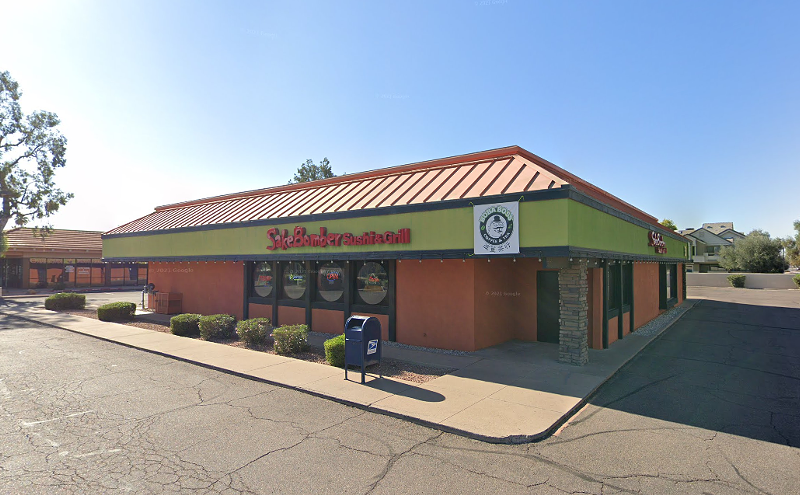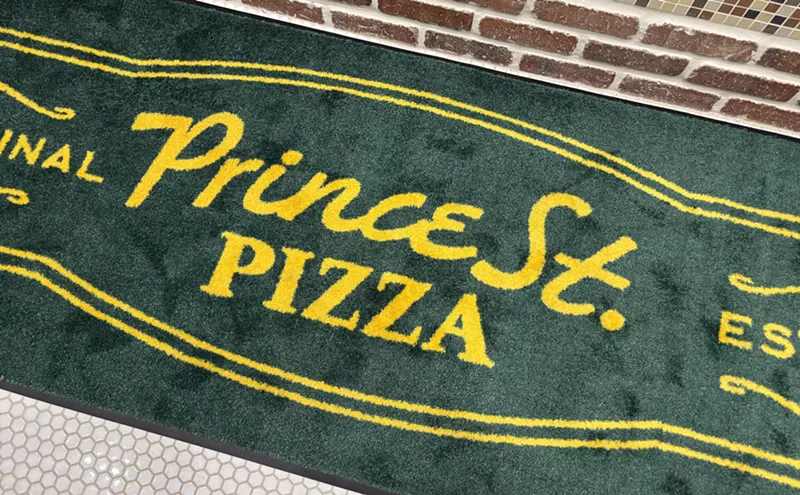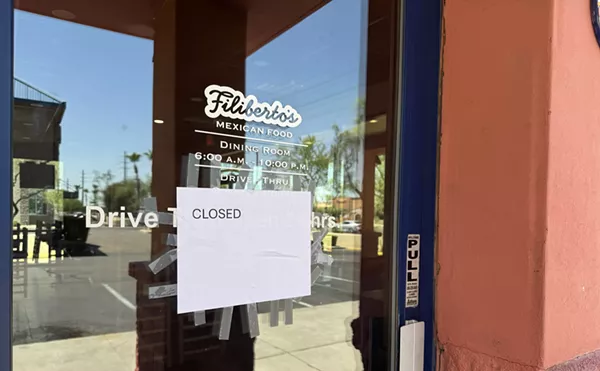But while there's still no peace between the Israelis and Palestinians, falafel has gained a foothold in the Valley, with about a dozen Middle Eastern restaurants listed in the Phoenix Yellow Pages. Several others are unlisted.
"People are looking for something healthy," says George Shankool, who owns and operates Saba's Mediterranean Cuisine at Tatum Boulevard and Bell Road in north Phoenix. "We get a lot of vegetarian people, health-conscious people. My son lost 100 pounds eating this food."
Sharon Ben-Mayer, of La Pita Cafe at Scottsdale Road and Shea Boulevard, agrees.
"The Mediterranean diet is based on lots of grains, fresh vegetables, olive oil and less meat. It's the way people should be eating."
Falafel is made primarily of either chickpeas or fava beans and is combined with tahini, which is prepared from sesame paste. In addition to being healthful, the fate of falafel has no doubt also been aided by the influx of more and more non-cowboy types.
La Pita's clientele is mainly transplants from other cities, Ben-Mayer says.
"They are so thrilled to find ethnic authenticity," she says. "People from the East know this food."
In the Middle East, the differences between the cultures seem insurmountable. You might easily conclude that the region has no coherent culture all. Take food as an indicator, though, and it's all one big family fight.
"All we need to do is sit down at some table and eat," says Ben-Mayer of the ongoing Middle East crisis. "We all like the same things."
Most Middle Eastern restaurants, representing whatever nationality, offer very similar menus including garbanzo bean hummus, tahini, falafel and the roasted meat known as shawarma. However, it's highly unlikely you'll ever find a dish that tastes quite the same from one restaurant to another.
To explain the difference between Israeli- and Arab-style cooking, Ben-Mayer refers to the Biblical twins Jacob and Esau, who grew into men who were very little alike.
"It's the same relationship with the food," Ben-Mayer says. "The same ingredients are used in different ways."
Ben-Mayer was born in New York but spent many summers in Israel as a child. It was there that she gained an appreciation for Middle Eastern food preparation. She married an Israeli, Daniel, and opened a restaurant in Manhattan. They've lived in the Valley for five years, and opened La Pita Cafe about eight months ago.
These familial differences are fried into the falafel itself. Israelis tend to make it from chickpeas, while an Arab prepares it with a mixture of chickpeas and fava beans or exclusively from fava. At Saba's, where the recipes are of Palestinian origin, the falafel is made with a bean mixture. La Pita makes it with chickpeas only.
Desserts differ as well. For example, Palestinians prepare baklava, the nut-filled pastry, with sugar-based syrup and rose water, as opposed to the honey Greeks prefer. One regular customer appreciated Saba's Palestinian-style baklava so much that he had the restaurant Fed Ex a shipment to his new home in Maryland after he moved.
Shankool, born in Iraq, says that variations exist within nationalities as well.
"In the old country, they don't have recipes written down. In every house it tastes a little different, depending on how that lady makes it. It's not so much the ingredients, but the amount that makes it different."
A Caldean Christian, Shankool left Iraq to escape persecution by the Moslem majority. He moved to Athens, then settled in Detroit. Unlike previous moves in his life, the one to Phoenix was purely for personal comfort. He and his wife prefer the weather.
While their staples are generally well received, both Saba's and La Pita have customers come in who just don't get it.
"Sometimes a person will want their food on a bun instead of a pita," says Joan Shankool, George's wife. "I have to explain to them they can't get it on a bun. It wouldn't work. Some of them get mixed up and call it a tortilla."
For those customers who come into the cafe and simply can't handle the ethnic flavor, Ben-Mayer offers a compromise.
A hamburger and French fries are on the menu.
"But I serve it in a pita," she says.











